**Note: This page is for educational inspiration and is not officially affiliated with National Walking Month & Walk to School Week. National Walking Month & Walk to School Week take place in May each year. They are organised by Living Streets, the UK charity for everyday walking, with a mission to create a walking nation. The purpose of the month is to encourage people to walk more, whether that's to school, to work, or just for fun. Walking is an easy and accessible way to stay active, improve physical and mental health, and help the environment by reducing car use. Living Streets promotes walking for everyone, highlighting its benefits for health, the community, and the planet. For official information, themes, and how to get involved, please visit the Living Streets website: www.livingstreets.org.uk/get-involved/campaign-with-us/national-walking-month.
National Walking Month: Friday 1st - Sunday 31st May 2026
Walk to School Week: Monday 18th - Friday 22nd May 2026 (TBC)
Understanding National Walking Month & Walk to School Week in EYFS & KS1
Let's put on our shoes and get walking to school, to the park, and everywhere in between! 🚶♀️🚶♂️
For early years settings, nurseries, preschools, childminders, and Year 1 and Year 2 classrooms, this month-long event provides a fantastic and practical theme for exploring physical development (gross motor skills), health and well-being, the environment, road safety, transport and travel, and personal, social & emotional development (PSED). It's about helping children understand the importance of being active, observing the world around them, and making safe, healthy choices. This day offers wonderful planning ideas and inspiration for engaging activities that truly resonate with young minds, making learning about health and exploration both essential and fun!
Why Is Learning About Walking Important for Young Children?
Integrating National Walking Month & Walk to School Week plus themes of active travel and outdoor exploration into your practice with young children (aged 0-7) is important for building lifelong healthy habits, fostering curiosity about the world, and developing crucial safety skills.
Promotes Physical Health: Encourages regular physical activity, which is vital for developing strong bodies.
Boosts Mental Well-being: Spending time outdoors and being active has a positive impact on mood and energy levels.
Enhances Observation Skills: Walking encourages children to notice and interact with their local environment.
Teaches Road Safety: Provides a real-world context for learning about traffic, crossing roads, and staying safe.
Develops Environmental Awareness: Helps children understand how walking helps reduce pollution and protects the planet.
Encourages Independence: Empowers children to feel confident and capable on their own two feet.
Engaging Walking Activities for National Walking Month (0-7 Year Olds)
Let's step outside and celebrate National Walking Month & Walk to School Week with these planning ideas and activities perfect for EYFS and KS1 children. The focus is on encouraging walking, observing the environment, and staying active! Many of these early years and year 1 activities can be supported by our dedicated 'Exercise', 'Stay Healthy', 'Active Journeys', and 'Out and About' resources.
Here's some inspiration for celebrating National Walking Month & Walk to School Week in your setting: (Please use your own discretion and knowledge of your children to ensure appropriateness of each activity and safety concerning any materials given and activity undertaken.)
Tracking Our Walks:
Use 'National Walking Month' Colouring Posters to decorate your setting and get everyone excited for the month.
Use 'My Walking Tick Sheet' to track how many times children walked, or use 'Colour The Days You Walked! Sheet' for a fun, visual representation.
Use 'My Walk To School Booklet' for children to record their journeys to and from school, encouraging them to think about what they see.
Use 'My Travel Tick Sheet - Scooter, Walk, Bike Or Car' to track all types of active journeys, promoting discussions about different ways to travel.
Observing the World:
Go on a planned walk around your local area. Provide children with 'During My Ride/Walk I Saw...' sheets to draw and/or write about things they see, hear, or feel. This could be a tree, a bird, a car, or even a funny-shaped cloud!
Connect to other themes, discussing things related to 'The Environment', 'Weather', and 'Seasons'.
Creative & Physical Activities:
Encourage children to think about what they would need for a walk (e.g., proper shoes, a coat).
Create a display celebrating the month using 'Our Walk To School Week - Feet Display', where children can decorate their own paper feet to add to the wall.
Use our ‘Expressive Movement’ resources for fun walking-related activities, like walking like different animals or characters.
Talk about the benefits of walking for our bodies and minds, linking to our 'Exercise' and 'Mental Health' themes.
Safety & Responsibility:
Discuss 'Road Safety' before going on a walk, teaching children how to safely cross a road and why it's important to walk with a grown-up.
Remind children about 'Sun Safety' if the weather is nice.
Talk about the importance of being active for our health, linking to our ‘Stay Healthy’ page.
Explore More: Please visit our ‘Exercise’, ‘Stay Healthy’, or ‘Active Journeys’ pages to explore our full catalogue of resources on this theme. You may also like to explore additional pages covering relevant and/or connected themes such as ‘Expressive Movement’, ‘Football’, ‘Mental Health’, ‘Out and About’, ‘Road Safety’, ‘Sport and PE Games’, ‘Stay Safe’, ‘Sun Safety’, ‘The Environment’, ‘Transport/Travel’, and ‘Weather’.
These activities offer great inspiration for making National Walking Month a memorable and impactful experience in your early years and Key Stage One setting, fostering health awareness, environmental responsibility, safety skills, and a lifelong appreciation for the simple joy of walking.
To explore ideas surrounding additional early years events, please visit our 'Special Dates Calendar' page.
Printable resources to support teaching & learning surrounding: ‘National Walking Month’ & ‘Walk to School Week’
‘Walking’ resources for EYFS & KS1 | Activities & Ideas:
The following is a small selection of our inspirational ‘Exercise’ and ‘Walking’ resources for EYFS & KS1:
(Please visit our ‘Exercise’, ‘Stay Healthy’ or ‘Active Journeys’ pages to explore our full catalogue of resources on this theme.)
Additional Pages you may like to explore which cover relevant &/or Connected themes
More Early Years Event Pages for MAy
🐢🌊 For early years settings, nurseries, preschools, childminders, and Year 1 and Year 2 classrooms, this day provides a wonderful and engaging theme for exploring animals (especially reptiles, sea…
🦋🌳🐠 International Day for Biological Diversity (IDB) is a special day celebrated every year on May 22nd. It was started by the United Nations to help everyone understand something very…
🔢➕ For early years settings, nurseries, preschools, childminders, and Year 1 and Year 2 classrooms, this day provides a fantastic and practical theme for exploring counting, number recognition…
Let's buzz about bees and discover why these tiny creatures are super important! 🐝🍯 For early years settings, nurseries, preschools, childminders, and Year 1 and Year 2 classrooms, this day…
Let's explore, discover, and learn amazing things, just like in a museum! 🏛️🔎 For early years settings, nurseries, preschools, childminders, and Year 1 and Year 2 classrooms, this day provides…
Let's dedicate a special time to celebrate every child in the UK and think about what they need to be safe, healthy, and happy! 🌟👧👦 For early years settings, nurseries, preschools, childminders…
Let's learn about some very special animals and plants that need our help! 🐾🌱 Endangered Species Day is a special day celebrated every year on the third Friday in May. It was started by a…
👨👩👧👦💖 International Day of Families is a special day celebrated every year on May 15th. It was started by the United Nations in 1993 because they wanted everyone to remember how important…
😊🧠 Mental Health Awareness Week happens every year in May. It's hosted by the Mental Health Foundation, a charity in the UK. This week is all about helping everyone understand that our minds…
Let's celebrate the amazing nurses who help us feel better! 👩⚕️🧑⚕️ For early years settings, nurseries, preschools, childminders, and Year 1 and Year 2 classrooms, this day provides a fantastic…
✨🧼 World Hand Hygiene Day is a special day celebrated every year on May 5th. It was started by the World Health Organization (WHO) with a very important message: 'SAVE LIVES:…
😄😂 The main idea of this day is to show how laughter can help bring peace and friendship to people all over the world. Dr. Kataria believes that laughter is like a super-power that can help people…
Let's put on our shoes and get walking to school, to the park, and everywhere in between! 🚶♀️🚶♂️ For early years settings, nurseries, preschools, childminders, and Year 1 and Year 2 classrooms…
Let's learn outside! 🌳☀️ Outdoor Classroom Day is a global campaign to inspire and celebrate outdoor play and learning, with two designated days each year: one in May and one in November…
Explore special dates (including awareness dates, festivals, celebrations & events) relevant to your EYFS & KS1 children
Browse our ‘Special Dates Calendar’ page using the link below. You’ll find calendars for every month of the year to aid your planning!
CLICK HERE to visit our ‘SPECIAL DATES CALENDAR PAGE’ for an entire year of key EYFS & KS1 events, festivals & celebrations.
SEARCH ‘LITTLE OWLS Resources’ USING THE FOLLOWING MENU BUTTONS…
Disclaimer:
This page is for educational purposes only and is intended to support early years and primary practitioners with ideas and resources related to 'National Walking Month'. We are not officially affiliated with or endorsed by Living Streets, which organises this event. We do not claim any rights to specific trademarks or official materials associated with this event. For official information, themes, and how to get involved in promoting walking, please visit the Living Streets website: www.livingstreets.org.uk/get-involved/campaign-with-us/national-walking-month.

































































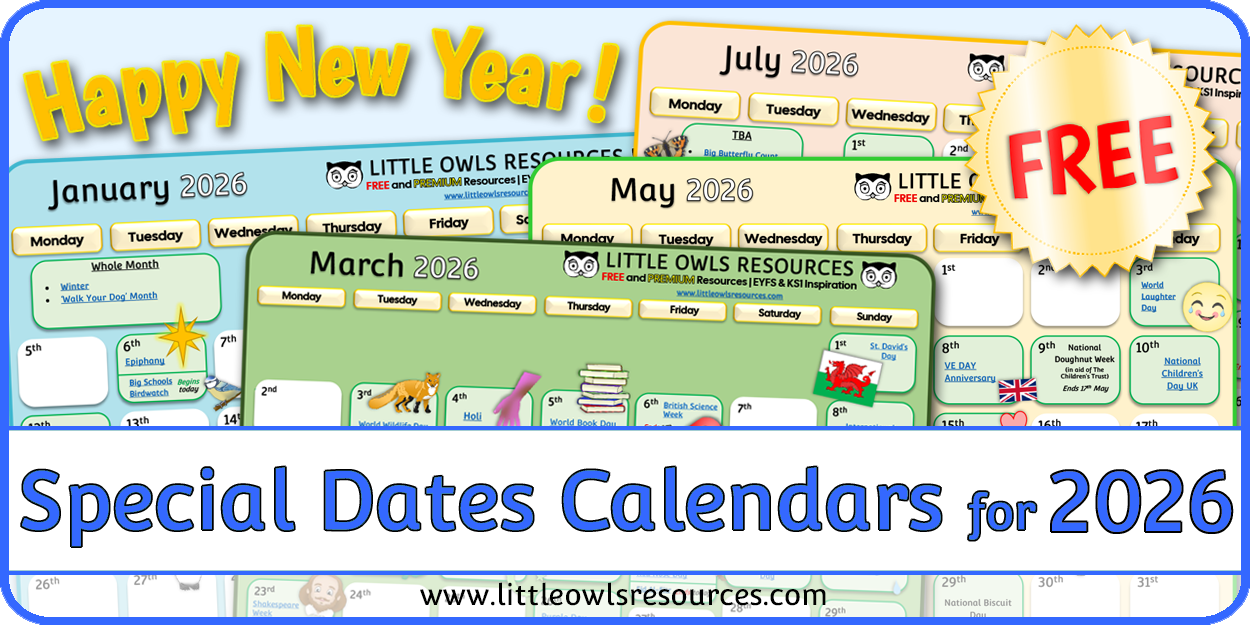
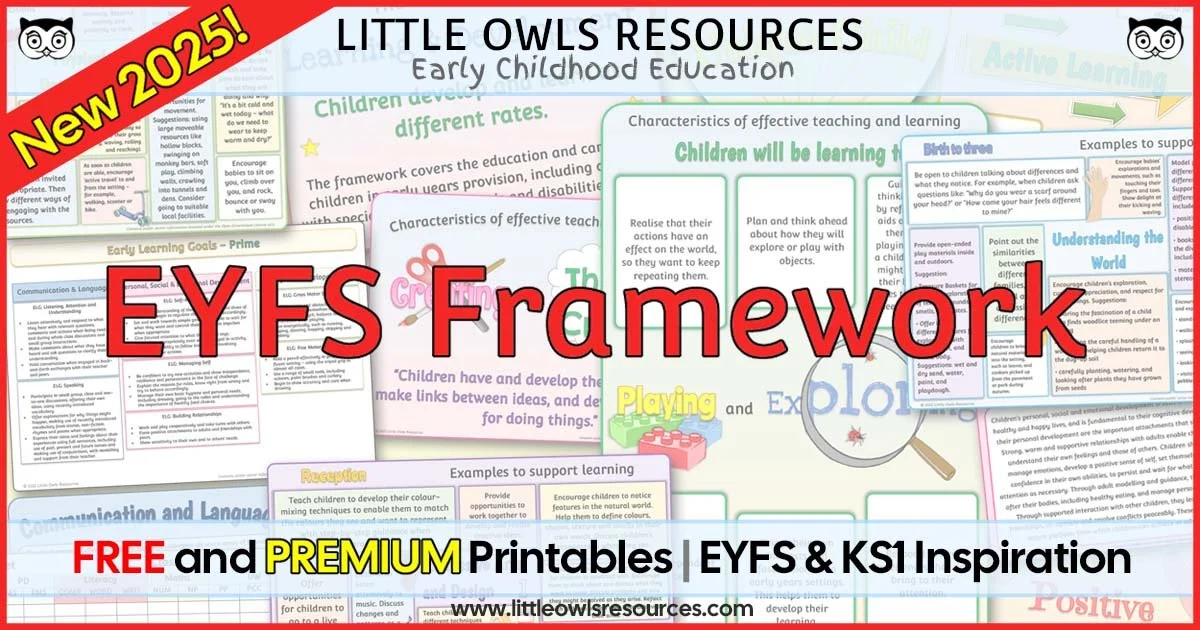

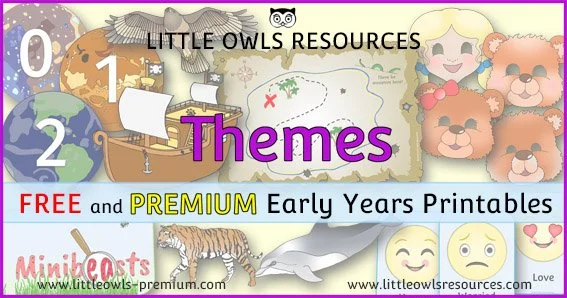

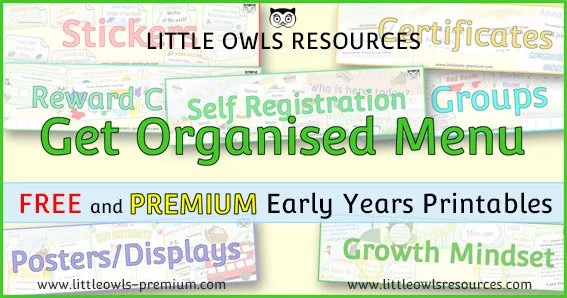

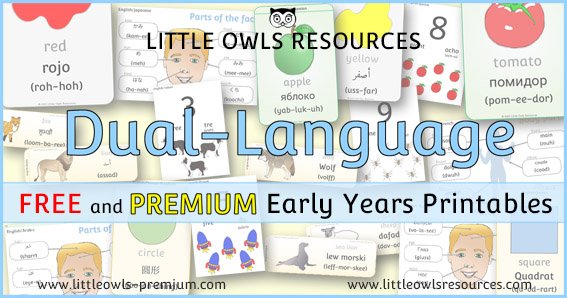
Let's dig in and grow something amazing! 🌱🌻🥕 For early years settings, nurseries, preschools, childminders, and Year 1 and Year 2 classrooms, this week provides a wonderfully rich and hands-on…